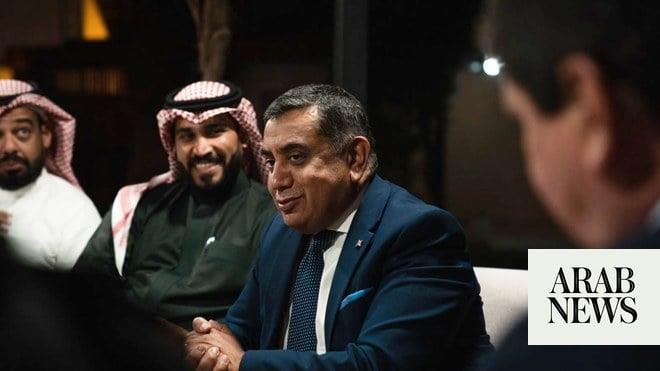
It cannot be often that the MENA Economic Monitor, a publication of the World Bank, can lay claim to being inspirational, but the authors of the most recent issue had a decent attempt.
“A New Economy for the Middle East and North Africa” is the title splashed on the cover, which is ambitious in its own right, but it was one of the later chapters, headed “A moonshot approach,” that really caught my eye.
It starts with a kind of righteous certainty you might normally find in something like the US Declaration of Independence — “We hold these truths…” — and it is worth quoting the opening paragraph in full:
“A new economy really is needed in MENA. And that new reality must emerge soon. In a region where the old social contracts are breaking down and hidebound economies fail to employ their most educated and potentially highly productive workers, a gradualist approach to change is not viable,” the authors asserted.
“Instead, the region requires an all-in effort, akin to the one the US undertook after it decided in the early 1960s that it wanted to land a man on the moon,” they continued. Hence the “moonshot” approach.
In 1961 President John F. Kennedy famously committed the US to a manned lunar landing within that decade with the stirring words “we seek to go to the moon”, and the World Bank has similarly grand targets.
“A MENA moonshot would involve a collective regional commitment to achieve parity with advanced economies in information and communications technology by 2022. MENA countries would seek to equal or better OECD countries in terms of their level of access to the Internet, bandwidth, and the number of financial transactions carried out electronically,” the World Bank said.
Young Arabs, especially graduates, are already digitally savvy, with Internet and mobile usage among the highest in the world, but they live in an over-regulated and under-invested technological environment.
Frank Kane
Their economic argument is persuasive. The region produces millions of qualified university graduates every year, but cannot find jobs for a lot of them. The old growth model that propelled China and Southeast Asia to economic prominence — labor-intensive light manufacturing — is not suitable for MENA’s educated graduate workforce.
Young Arabs, especially graduates, are already digitally savvy, with Internet and mobile usage among the highest in the world, but they live in an over-regulated and under-invested technological environment.
For example, a decade ago, the economies of Latin America and East Asia had Internet speeds and usage comparable to MENA, but have now surpassed the Arab world and are rivaling the West. Policymakers in MENA should set bold goals to liberate the communications and telecoms industry, especially with regard to financial transactions.
Above all, policymakers should act quickly, to maintain the momentum of transformation strategies that have been introduced in many of the countries of the region, including Saudi Arabia with Vision 2030.
The World Bank’s sister organization, the International Monetary Fund (IMF), made much the same point, rather more prosaically, in its latest Regional Economic Outlook for the Middle East and Central Asia.
Rather than moonshots, the IMF focused on the need for continued fiscal reform, but the end effect is the same. Without strong fiscal balances, the investment, and the breathing space, necessary for the “moonshot” program cannot be achieved.
The IMF spoke of reform fatigue, and there must be a risk that even progressive governments lapse into the bad old ways when they hit the bumps that must come on the road to reform. State subsidy, over-reliance on the state as an employer, and public sector stimulus are all understandable temptations, especially when oil revenues have been improving, as they were until a few weeks ago.
MENA countries should “step up” their financial reform programs, especially in the form of sales taxes (as Saudi Arabia and the UAE have already introduced), as well as corporate tax and, “eventually,” personal income tax, the IMF recommended.
Accelerating the pace of reform within the region will not be easy, especially against the rather more worrying global economic background the IMF sees for the next couple of years. But the goal must be worth a certain amount of sacrifice.
Frank Kane is an award-winning business journalist based in Dubai. Twitter: @frankkanedubai
Disclaimer: Views expressed by writers in this section are their own and do not necessarily reflect Arab News" point-of-view












